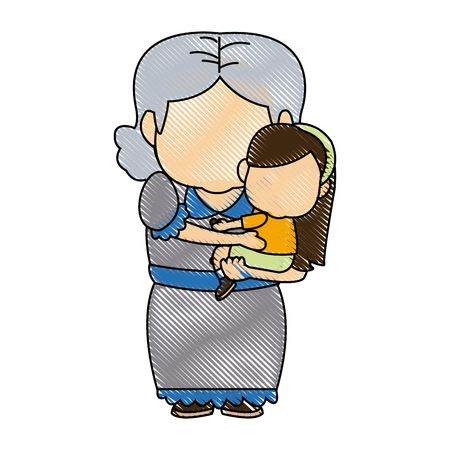1. The Link Between Nutrition and Sleep
Understanding how your toddlers diet impacts their sleep cycles and overall restfulness is essential for promoting healthy sleep habits. The food your child eats throughout the day plays a significant role in regulating their energy levels, mood, and ability to fall and stay asleep at night.
How Food Affects Sleep Hormones
Certain nutrients influence the production of melatonin and serotonin, two key hormones that regulate sleep. When your toddler consumes a balanced diet rich in these nutrients, they are more likely to experience consistent and restful sleep.
| Nutrient | Role in Sleep | Food Sources |
|---|---|---|
| Tryptophan | Aids in melatonin production | Dairy, turkey, bananas, oats |
| Magnesium | Helps relax muscles and nerves | Nuts, seeds, leafy greens, whole grains |
| B Vitamins | Supports serotonin production | Eggs, fish, whole grains, dairy |
| Calcium | Aids in melatonin conversion | Dairy products, tofu, almonds, leafy greens |
The Impact of Sugar and Processed Foods on Sleep
A diet high in sugar and processed foods can lead to fluctuating blood sugar levels, which may cause hyperactivity before bedtime and nighttime awakenings. Limiting sugary snacks and opting for whole, unprocessed foods can help stabilize energy levels and promote better sleep quality.
Avoid These Before Bedtime:
- Sugary cereals and snacks
- Sodas or fruit juices with added sugar
- Caffeinated drinks like chocolate milk or certain teas
The Importance of Timing Meals and Snacks
The timing of meals also affects how well your toddler sleeps. Eating too close to bedtime may cause digestive discomfort, while going to bed hungry might lead to frequent wake-ups. A light snack with sleep-supporting nutrients about 30-60 minutes before bed can be beneficial.
Ideal Pre-Bedtime Snacks:
- A small bowl of oatmeal with banana slices
- A piece of whole-grain toast with almond butter
- A serving of Greek yogurt with berries
- A warm glass of milk with a few nuts
Poor nutrition can lead to restless nights for both you and your toddler. By ensuring they consume the right balance of nutrients throughout the day and avoiding disruptive foods before bedtime, you can support healthier sleep patterns.
2. Key Nutrients for Better Sleep
What your toddler eats can have a big impact on how well they sleep at night. Certain vitamins and minerals help promote relaxation, regulate sleep cycles, and support overall brain function. Let’s take a closer look at some of the key nutrients that can contribute to better sleep.
Magnesium: The Relaxation Mineral
Magnesium plays a crucial role in calming the nervous system and relaxing muscles, making it easier for toddlers to fall asleep and stay asleep. A deficiency in magnesium may lead to restlessness or difficulty settling down at night.
Best Sources of Magnesium
| Food | Magnesium Content |
|---|---|
| Bananas | Good source, also contains potassium for muscle relaxation |
| Spinach | Packed with magnesium and other essential nutrients |
| Pumpkin Seeds | A great snack option rich in magnesium |
| Oatmeal | A comforting bedtime snack that promotes relaxation |
Calcium: Supports Melatonin Production
Calcium helps the brain use tryptophan to produce melatonin, the hormone responsible for regulating sleep cycles. Ensuring your toddler gets enough calcium can improve their ability to fall asleep naturally.
Dairy and Non-Dairy Calcium Sources
| Dairy Sources | Non-Dairy Sources |
|---|---|
| Milk | Almonds |
| Cottage Cheese | Kale |
| Yogurt | Soybeans |
| Cheese | Sardines (with bones) |
Tryptophan: Helps Produce Sleep Hormones
Tryptophan is an amino acid that helps the body produce serotonin and melatonin, both of which are important for sleep regulation. Including tryptophan-rich foods in your toddler’s diet can naturally support better sleep.
Tryptophan-Rich Foods for Toddlers
- Turkey: A well-known source of tryptophan that can be included in meals.
- Eggs: Easy to prepare and packed with protein along with tryptophan.
- Nuts & Seeds: Almonds and sunflower seeds contain tryptophan and healthy fats.
- Dairy Products: Milk, cheese, and yogurt provide both calcium and tryptophan.
- Bananas: Contain both tryptophan and magnesium for extra sleep benefits.
A Balanced Diet for Restful Sleep
The right combination of these nutrients can make a noticeable difference in your toddler’s sleep patterns. Offering a variety of whole foods throughout the day ensures they get the essential vitamins and minerals needed for restful nights.

3. Foods to Avoid Before Bedtime
What your toddler eats before bedtime can have a big impact on their sleep quality. Some foods can make it harder for them to fall asleep or stay asleep through the night. To help your little one get the rest they need, its best to avoid certain snacks and meals in the evening.
Sugary Snacks
Sugar can give toddlers a quick burst of energy, which is the last thing they need before bedtime. Eating sugary snacks too close to bedtime can make it difficult for them to settle down and fall asleep. Common high-sugar foods to avoid include:
| Food | Why It Disrupts Sleep |
|---|---|
| Candy | Causes a sugar rush that makes it harder to relax |
| Cookies | High in sugar, leading to increased energy levels |
| Sugary Cereals | Packed with sugar, which can delay sleep onset |
| Sodas & Fruit Juices | Often contain added sugars that keep toddlers awake |
Caffeine-Containing Foods and Drinks
Caffeine is a stimulant that can interfere with your toddlers ability to fall asleep. While you may not be giving your child coffee, caffeine can still be found in some surprising places. Keep an eye out for these hidden sources of caffeine:
- Chocolate: Contains small amounts of caffeine that can affect sleep.
- Iced Tea: Some bottled teas contain caffeine, even if they seem mild.
- Soda: Many sodas contain caffeine, even those labeled as “light” or “diet.”
- Certain Medications: Some cold medicines and pain relievers contain caffeine, so check labels carefully.
Heavy Meals Before Bedtime
A large or heavy meal too close to bedtime can make your toddler uncomfortable and restless during sleep. Their little bodies need time to digest food properly before lying down for the night. Try to avoid these types of meals right before bed:
| Meal Type | Why It Affects Sleep |
|---|---|
| Fried or Greasy Foods | Takes longer to digest and may cause stomach discomfort. |
| Pasta with Heavy Sauces | The combination of carbs and rich sauces can lead to bloating. |
| Pizza | The mix of cheese, sauce, and grease can cause indigestion. |
| Spicy Foods | Might lead to acid reflux or stomach upset at night. |
Avoiding Late-Night Snacks
If your toddler gets hungry before bed, choose light and nutritious snacks instead of sugary or heavy options. A small portion of yogurt, a banana, or whole-grain crackers with peanut butter are better choices that won’t interfere with their sleep.
The right food choices before bedtime can set your toddler up for a restful night. By avoiding sugary snacks, caffeine-containing foods, and heavy meals, you’ll help them develop healthy sleep patterns that support their growth and development.
4. Meal Timing and Sleep Quality
When and how often your toddler eats can have a big impact on their sleep quality. The timing of meals and snacks plays a crucial role in helping your little one fall asleep easily and stay asleep throughout the night.
How Meal Timing Affects Sleep
A well-timed meal schedule helps regulate your toddler’s energy levels, digestion, and overall comfort at bedtime. If they eat too close to bedtime, they may feel too full or experience digestive discomfort. On the other hand, if they go to bed hungry, they might wake up frequently during the night.
Best Meal and Snack Schedule for Better Sleep
A consistent eating schedule can help improve your toddler’s sleep patterns. Below is a general guideline for meal and snack timing:
| Time | Meal/Snack | Why It Helps |
|---|---|---|
| 7:30 AM – 8:00 AM | Breakfast | Provides energy to start the day and sets a routine. |
| 10:00 AM – 10:30 AM | Morning Snack | Keeps blood sugar stable and prevents crankiness before lunch. |
| 12:00 PM – 12:30 PM | Lunch | A balanced meal keeps them satisfied until the afternoon nap. |
| 3:00 PM – 3:30 PM | Afternoon Snack | A light snack helps maintain energy without interfering with dinner. |
| 6:00 PM – 6:30 PM | Dinner | A well-balanced dinner supports relaxation before bedtime. |
| 7:30 PM – 8:00 PM | (Optional) Light Bedtime Snack | If needed, a small snack can prevent nighttime hunger without causing discomfort. |
The Best Foods for Evening Meals and Snacks
The types of foods your toddler eats in the evening also matter. Here are some good options:
- Tryptophan-rich foods: Foods like turkey, bananas, yogurt, and oats help produce melatonin, which promotes sleep.
- Complex carbohydrates: Whole grains and sweet potatoes provide slow-releasing energy that prevents sudden hunger at night.
- Dairy products: Warm milk or cheese contains calcium, which helps regulate sleep hormones.
- Avoid sugary or caffeinated foods: Chocolate, soda, or overly sweet treats can make falling asleep harder.
Avoid Late-Night Eating Habits
If your toddler eats too late at night, their body will still be digesting food when its time for sleep. Try these tips to avoid late-night eating issues:
- No heavy meals within an hour of bedtime: Give enough time for digestion before laying down.
- Avoid sugary snacks before bed:Sugar can cause energy spikes that make it harder to settle down.
- Create a bedtime routine:A predictable schedule with dinner and a light snack (if needed) helps signal that sleep is coming soon.
The right meal timing can make a big difference in how well your toddler sleeps. By following a balanced schedule and choosing sleep-friendly foods, you can help them fall asleep easier and stay asleep longer.
5. Creating a Sleep-Friendly Diet
What your toddler eats throughout the day can have a big impact on how well they sleep at night. By incorporating the right foods into their diet, you can help promote better rest and fewer nighttime wake-ups. Here are some practical tips to create a sleep-friendly diet for your little one.
Best Foods for Better Sleep
Certain nutrients play a key role in promoting relaxation and improving sleep quality. Below are some of the best foods to include in your toddler’s meals:
| Food | Sleep Benefits |
|---|---|
| Bananas | Rich in magnesium and potassium, which help relax muscles and nerves. |
| Dairy (milk, yogurt, cheese) | Contains tryptophan, which supports melatonin production for better sleep. |
| Oatmeal | A good source of melatonin and complex carbohydrates that stabilize blood sugar levels. |
| Nuts (almonds, walnuts) | Packed with magnesium and melatonin to encourage restful sleep. |
| Tart cherries | Naturally high in melatonin, helping regulate the sleep cycle. |
Avoid These Sleep-Disrupting Foods
Certain foods can interfere with your toddlers ability to fall or stay asleep. Try to limit or avoid the following before bedtime:
- Sugary snacks: Candy, cookies, and sweetened drinks can cause energy spikes and crashes.
- Caffeinated foods: Chocolate and some flavored yogurts may contain caffeine that disrupts sleep.
- Sodium-heavy meals: Salty foods like processed snacks can lead to dehydration, making your toddler wake up thirsty at night.
A Sample Sleep-Friendly Meal Plan
If youre unsure how to incorporate these sleep-supporting foods into daily meals, here’s an easy meal plan idea:
| Meal | Food Ideas |
|---|---|
| Breakfast | Bowl of oatmeal topped with sliced bananas and a glass of milk. |
| Lunch | A turkey and cheese sandwich on whole wheat bread with a side of tart cherries. |
| Dinner | Baked salmon with steamed broccoli and a small serving of quinoa. |
| Bedtime Snack | A handful of almonds with warm milk or a banana smoothie. |
Tips for Encouraging Healthy Eating Habits for Better Sleep
- Create a routine: Serve meals at consistent times to regulate digestion and sleep cycles.
- Avoid heavy meals before bed: Keep dinner light and serve bedtime snacks at least 30 minutes before sleep.
- Keeps snacks balanced: Pair proteins with healthy carbs to maintain steady energy levels through the night.
The Role of Hydration in Sleep Quality
Mild dehydration can cause discomfort that wakes your toddler up at night. Offer water throughout the day but limit liquids close to bedtime to reduce nighttime bathroom trips. A small cup of warm milk before bed can be comforting without causing excessive thirst overnight.
A well-balanced diet not only supports overall health but also plays a crucial role in helping your toddler get restful sleep. By choosing the right foods and avoiding disruptive ones, you can create an environment that promotes relaxation and better nighttime rest.


